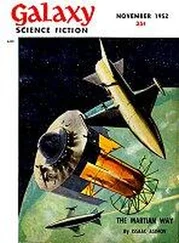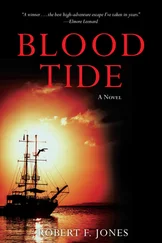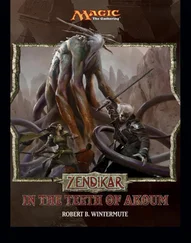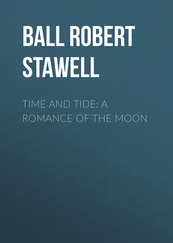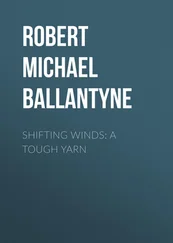Robert McReynolds - Where Strongest Tide Winds Blew
Здесь есть возможность читать онлайн «Robert McReynolds - Where Strongest Tide Winds Blew» — ознакомительный отрывок электронной книги совершенно бесплатно, а после прочтения отрывка купить полную версию. В некоторых случаях можно слушать аудио, скачать через торрент в формате fb2 и присутствует краткое содержание. Жанр: Прочие приключения, foreign_prose, на английском языке. Описание произведения, (предисловие) а так же отзывы посетителей доступны на портале библиотеки ЛибКат.
- Название:Where Strongest Tide Winds Blew
- Автор:
- Жанр:
- Год:неизвестен
- ISBN:нет данных
- Рейтинг книги:4 / 5. Голосов: 1
-
Избранное:Добавить в избранное
- Отзывы:
-
Ваша оценка:
- 80
- 1
- 2
- 3
- 4
- 5
Where Strongest Tide Winds Blew: краткое содержание, описание и аннотация
Предлагаем к чтению аннотацию, описание, краткое содержание или предисловие (зависит от того, что написал сам автор книги «Where Strongest Tide Winds Blew»). Если вы не нашли необходимую информацию о книге — напишите в комментариях, мы постараемся отыскать её.
Where Strongest Tide Winds Blew — читать онлайн ознакомительный отрывок
Ниже представлен текст книги, разбитый по страницам. Система сохранения места последней прочитанной страницы, позволяет с удобством читать онлайн бесплатно книгу «Where Strongest Tide Winds Blew», без необходимости каждый раз заново искать на чём Вы остановились. Поставьте закладку, и сможете в любой момент перейти на страницу, на которой закончили чтение.
Интервал:
Закладка:
I went to my room, packed my clothes, carefully loaded two revolvers and placed my trunk and other articles of value in the hands of my friends, with orders to send them to Arequipa after the sensation of my escape was over. After supper, to allay any suspicion the authorities might have, I strolled along the wharf, went into a billiard hall and actually played a game of billiards with the captain of the guard, who I have no doubt had the order to arrest me in his pocket. Thompson had gone to his room. I followed thirty minutes later, and at precisely twelve o’clock, I sallied out of the house by the rear, and met Thompson at the agreed place on the beach.
The night was dark, and everything being in readiness, we mounted and rode through the town dressed like natives. We soon gained the highway leading to Tambo and after being well clear of Ilo, we put our horses to their best. We rode the fifty-five miles to Tambo, over a rugged and mountainous country and caught the train for Arequipa, arriving that night after an absence for me of two years.
VII.
IN THE THROES OF REVOLUTION
The railroad had now been extended from Arequipa to Puno. A revolution had broken out and insurgents were cutting the telegraph wires.
I was engineer on a combination locomotive and coach and as this locomotive will be in the scene of more than one tragedy, I will describe it. It was specially designed for the president and officers of the road, weighing only eight tons. On the same frame with the engine, in fact, a part of it, was built a beautiful black walnut coach, with a seating capacity of from twelve to eighteen persons. It had two side doors and one in front, which, when opened, communicated with the engineer. There were windows hung with beautiful damask curtains, the carpets were of rich velvet, and a center table and several cupboards under the seats completed the furnishings. It was in reality a palace on wheels, named The Arequipena, meaning a native of Arequipa. I mention the design of the combination engine-car for the reason that, on a duplicate of The Arequipena, later occurred one of the most perilous and tragic events of my life.
The stretch of road from Julica to Cabanillas was level and straight, except about two miles from Cabanillas station, where a heavy side cut and sharp curve was the only obstruction to the view for miles. I was going at the rate of forty miles an hour, when, on nearing this curve, I beheld a large Rogers locomotive with a train of coaches coming toward me. I cannot describe the thoughts that went through my brain–there was a terrific crash–flying debris–a hissing of steam–mingled with the groans of the wounded and dying.
I was thrown out of the way of the wreck and near the edge of a river, and when I regained my senses a priest was bending over me, bathing my forehead. I gradually realized what had happened and went to my engine. There was scarcely a vestige left of The Little Arequipena, only a piece of the boiler and two pairs of driving wheels. The shock was so great that the little coach was hurled over the other engine, which was not damaged much.
I saw several persons bending over some one, and, on going closer, found William Cuthbert, our traveling engineer, stretched on the ground dying. Five soldiers were dead beneath the ruins. One officer, with his legs broken in two places, begged that others be cared for first. The road-master was in agony, his lower limbs frightfully burned by escaping steam; all the others were more or less seriously injured, except myself. When relief came our dead and wounded were taken to Arequipa.
We had been sent out to repair the wires, and orders had come to me that we should be given the right of way. The engineer who collided with me told me that the commander of the government forces had ordered our superintendent to furnish transportation for his troops to Puno at once, and when informed that it would be impossible to send a train until we were heard from, he threatened to place the superintendent in jail unless his orders were complied with. No one on the other train was hurt. They had six coaches full of soldiers, the priest who assisted me being among them.
The day after our arrival at Arequipa the funeral of William Cuthbert took place. The procession was the largest that I had ever witnessed at any funeral in Arequipa, natives as well as foreigners taking part.
It was a long time before I recovered from the shock, not alone of the collision, but the death of William Cuthbert who always had been ready to befriend me and who had given me much valuable information. He lies buried in the cemetery at Arequipa, in a vault. A marble slab was erected to his memory.
The general manager sent for me one day to come to his office in Arequipa, and after talking over the cause of the collision, I told him that I considered him to blame for allowing any engine and train to go out without knowing first where we were, and that it would have been better to have gone to prison, that if he had been sent there the American government would have demanded his freedom, and he would have been honored. As it stood, he was to a certain extent responsible for that dreadful affair. After some more words I left the office, realizing that I had incurred the displeasure of the head officer. I concluded to leave, which I was sorry to do, as I looked upon Arequipa as my only home.
I visited Valparaiso and again met Cockney Spider. He was still at his old business, conducting a runaway sailors’ boarding house. A few weeks later found me in Panama, an engineer on the Panama and Aspinwall railroad. The climate, I believe, is the most wretched in the world, and tropical vegetation grows the rankest. In a few months I was stricken with the yellow fever, but thanks to my robust constitution I soon recovered. About this time I met an official of the government railway at Ilo, who desired me to return and accept a position as engineer on the road. I told him of my troubles in that town with the officials. He met me soon afterwards, with a contract duly drawn up for eighteen months’ service and a guarantee that I should not be molested by any petty official.
When I arrived at Ilo, imagine my surprise to find that the man who rowed me ashore was the Italian who caused my arrest. He offered to shake hands but I refused. When I went to the hotel many of my old native friends came to see me, and informed me that after I had left they discovered the person who did the shooting. It was done by one of their own number, who managed to get away.
Конец ознакомительного фрагмента.
Текст предоставлен ООО «ЛитРес».
Прочитайте эту книгу целиком, купив полную легальную версию на ЛитРес.
Безопасно оплатить книгу можно банковской картой Visa, MasterCard, Maestro, со счета мобильного телефона, с платежного терминала, в салоне МТС или Связной, через PayPal, WebMoney, Яндекс.Деньги, QIWI Кошелек, бонусными картами или другим удобным Вам способом.
Интервал:
Закладка:
Похожие книги на «Where Strongest Tide Winds Blew»
Представляем Вашему вниманию похожие книги на «Where Strongest Tide Winds Blew» списком для выбора. Мы отобрали схожую по названию и смыслу литературу в надежде предоставить читателям больше вариантов отыскать новые, интересные, ещё непрочитанные произведения.
Обсуждение, отзывы о книге «Where Strongest Tide Winds Blew» и просто собственные мнения читателей. Оставьте ваши комментарии, напишите, что Вы думаете о произведении, его смысле или главных героях. Укажите что конкретно понравилось, а что нет, и почему Вы так считаете.

